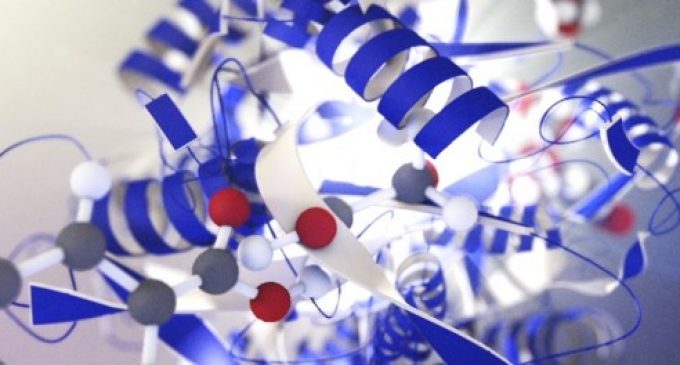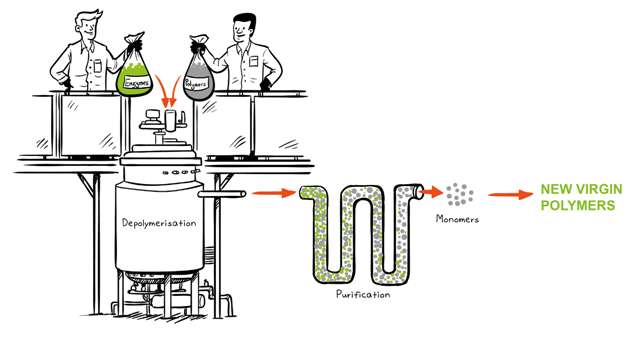A Paradigm Shift in How Effectively PET Can be Recycled

Carbios, a company pioneering new bio-industrial solutions to reinvent the lifecycle of plastic and textile polymers, has announced the publication of an article in the prestigious scientific journal Nature, entitled: ‘An engineered PET-depolymerase to break down and recycle plastic bottles’. The article is co-authored by scientists at Carbios and at the company’s renowned academic partner, the Toulouse Biotechnology Institute [1] (TBI).
The article describes the development of a novel enzyme, which can biologically depolymerize all polyethylene terephthalate (PET) plastic waste, followed by an extremely efficient recycling into new bottles. PET is the most common thermoplastic polymer and is used to manufacture bottles, polyester clothing fibers, food containers, and various thermoformed packaging and components. Carbios’ recycling process, the first of its kind, initiates a real transition to a circular economy and can better prevent plastic pollution from harming our oceans and planet. This innovative technology also paves the way for recycling PET fibers, another major challenge in guaranteeing a clean and protected environment for future generations.
Professor Alain Marty, Carbios’ Chief Scientific Officer and co-author of the Nature article, says: “I am very proud that Nature, one of the most highly respected scientific journals in the world, has validated the quality of the research led by Carbios and TBI laboratory scientists in developing a PET recycling enzyme and a revolutionary process. The results obtained confirm the industrial and commercial potential of the Company’s proprietary process, which will be tested in 2021 in our demonstration plant in the heart of the French Chemical Valley, near Lyon.”
Sophie Duquesne, INRAE Researcher, says: “For any researcher, seeing its work recognized by the prestigious journal Nature is a true achievement. I am very proud of the work accomplished by the researchers at TBI and Carbios, whose collaborative efforts have led to the development of a sustainable solution to the end of life of plastics.”
Dr Saleh Jabarin, Distinguished Professor at The University of Toledo, Ohio and a member of Carbios’ Scientific Committee, adds: “It’s a real breakthrough in the recycling and manufacturing of PET. Thanks to the innovative technology developed by Carbios, the PET industry will become truly circular, which is the goal for all players in this industry, especially brand-owners, PET producers and our civilization as a whole.”
Nature, the highest Impact Factor scientific journal, recognizes the ground-breaking quality of the enzymatic engineering research being done by Carbios and TBI, that is paving the way to virtuous management of plastic waste. “Carbios is the first company to successfully combine the two scientific worlds of enzymology and plastics,” comments Dr. Philippe Pouletty, CEO of Truffle Capital and Co-founder of Carbios.
By leveraging many years of experience with a world-renowned team, Carbios and TBI are proud to have been able to increase the degradation yield of PET waste to 90% in 10 hours, a significant upswing from the initial degradation yield of 1% after several weeks. This paradigm shift in how effectively PET can be recycled, is leading toward a future circular economy technology applicable to all PET waste, which Carbios is proud to be spearheading.
To read the article in Nature, please find the link here:
https://www.nature.com/articles/s41586-020-2149-4
[1] : A mixed research unit INSA Toulouse, INRAE, CNRS.


































